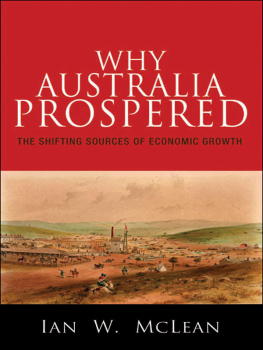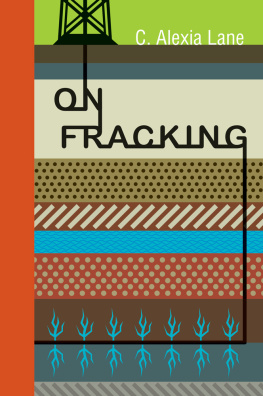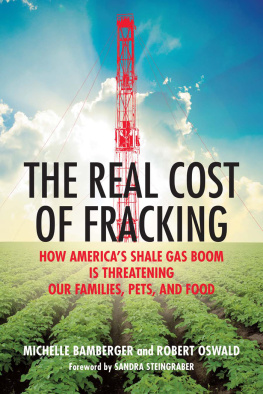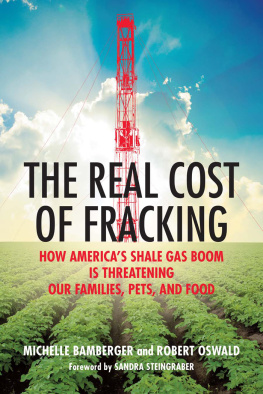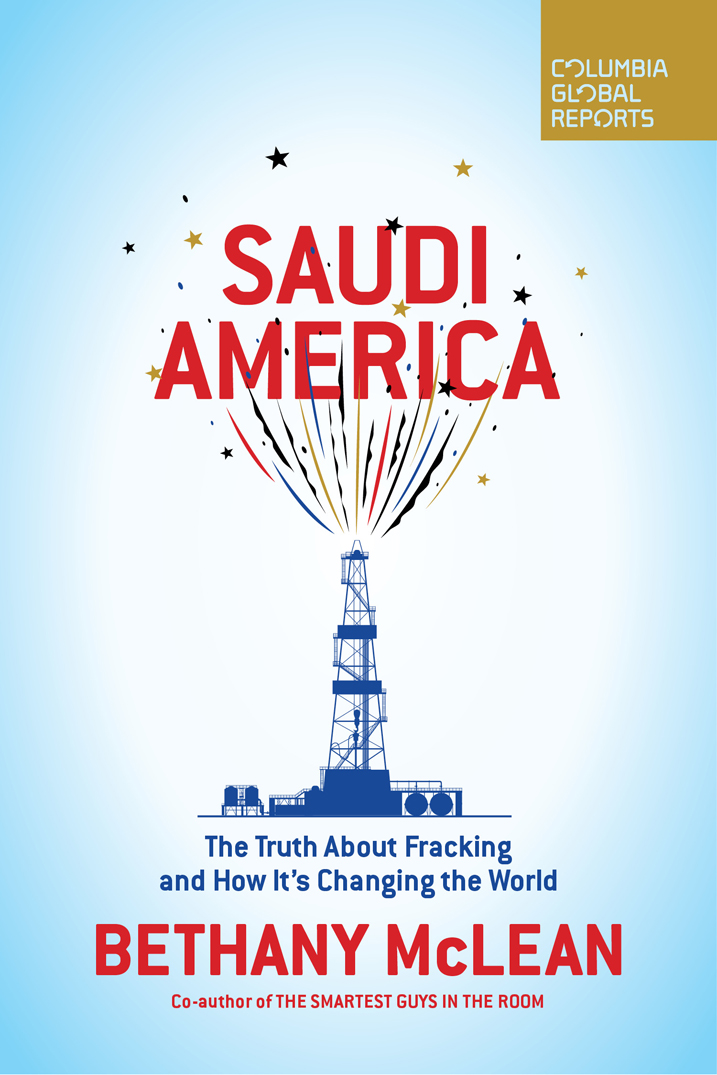


Saudi America
The Truth About Fracking and How Its Changing the World
Copyright 2018 by Bethany McLean
All rights reserved
Published by Columbia Global Reports
91 Claremont Avenue, Suite 515
New York, NY 10027
globalreports.columbia.edu
facebook.com/columbiaglobalreports
@columbiaGR
Library of Congress Control Number: 2018949784
ISBN: 9780999745458
Book design by Strick&Williams
Map design by Jeffrey L. Ward
Author photograph by Miranda Sita
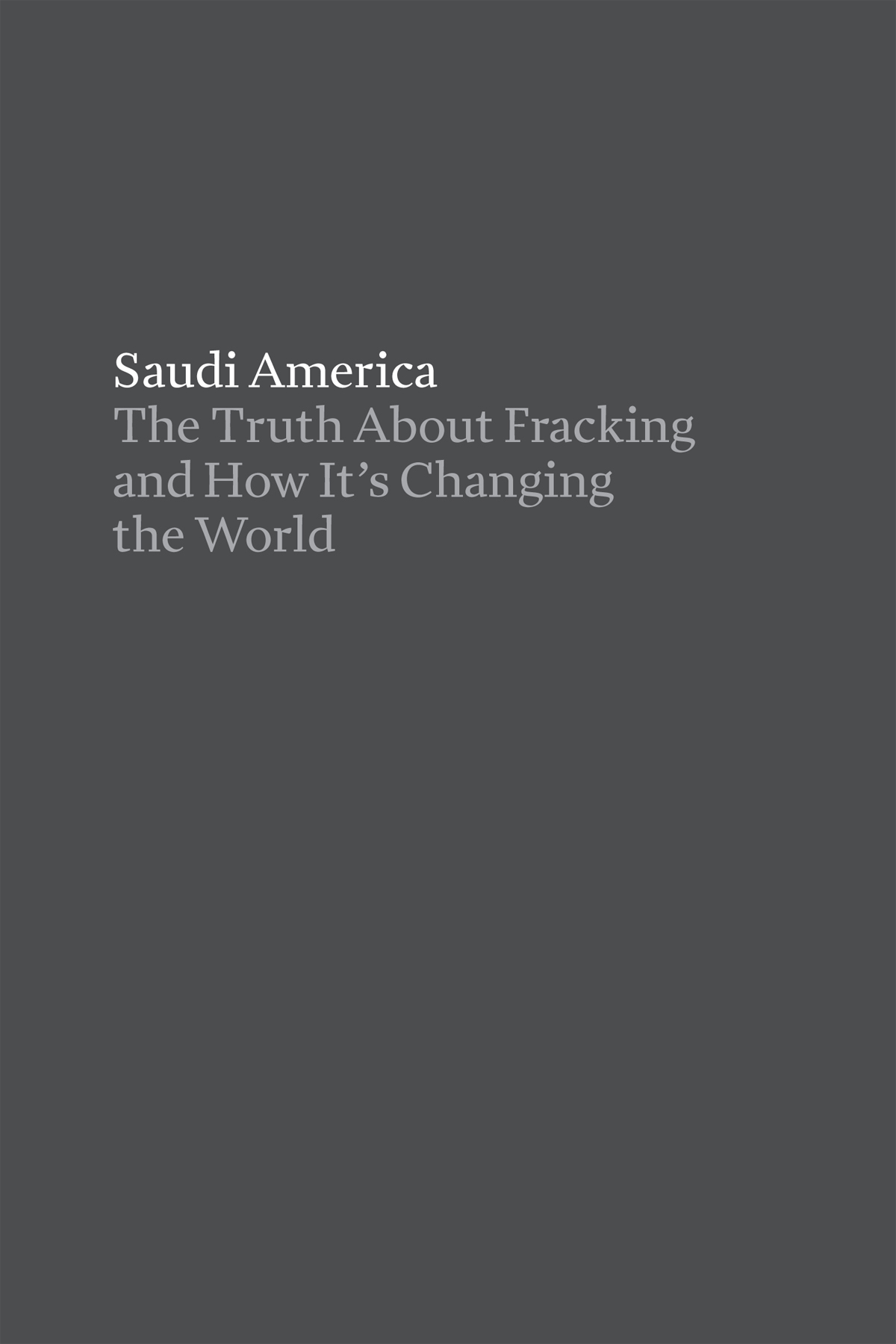
Table of Contents
Guide
CONTENTS
In the late afternoon on New Years Eve, 2015, the Theo T, a hulking, dark gray Bahamian tanker, gingerly maneuvered in the light rain through a channel from the North Beach Terminal at the port of Corpus Christi in southern Texas into the open waters of the Atlantic Ocean. The Theo T was fully loaded with American crude oil that had been drilled by Conoco Phillips in Texass Eagle Ford shale, a rock formation deposited over sixty-five million years ago that became, in the modern age of fracking, one of the most prolific oil fields in the United States. The oil had traveled one hundred miles through pipeline owned by San Antonio-based NuStar Energy. Twenty days after the Theo T disembarked from Corpus Christi, the oil would arrive at Marseilles in the Mediterranean Sea, more than five thousand miles away, where Vitol, a huge international energy trader, would take ownership of it.
The Theo Ts seemingly routine journey was anything but. Two weeks earlier President Barack Obama had lifted the ban that for some four decades had essentially prohibited the export of American crude oil.
Ever since a series of 1970s era laws, all of which were passed during crippling fears of oil shortages, the export ban existed as both a great rebuke and a great contradiction. On one level, the ban flew in the face of the free market ideals America holds so dear. But even as presidents from Ford to both Bushs emphasized the importance of energy independence, the country had in fact become more and more dependent, particularly on the Middle East, and more and more embroiled in the regions politics. By the spring of 2006, U.S. net imports of crude oil and petroleum accounted for almost two-thirds of our consumption.
By the time Theo T set sail, carrying the first American oil export of the twenty-first century, the energy world had been entirely turned upside down by an epic development few had foreseen. America was an oil powerhouse, ready to eclipse both Saudi Arabia and Russia, and was the worlds largest producer of natural gas.
Few people saw this coming. This remarkable transformation in the U.S. was brought about by American entrepreneurs who figured out how to literally force open rocks often more than a mile below the surface of the earth, to produce gas, and then oil. Those rockscalled shale, or source rock, or tight rock, and once thought to be impermeablewere opened by combining two technologies: horizontal drilling, in which the drill bit can travel well over two miles horizontally, and hydraulic fracturing, in which fluid is pumped into the earth at a high enough pressure to crack open hydrocarbon bearing rocks, while a so-called proppant, usually sand, holds the rocks open a sliver of an inch so the hydrocarbons can flow. A fracking entrepreneur likens the process to creating hallways in an office building that has noneand then calling a fire drill.
In November 2017, production topped the ten million barrel a day record set in 1970, back in the last gasp of the legendary oil boom. This year, U.S. oil production is expected to reach almost eleven million barrels a day, according to the U.S. Energy Information Administration. The countrys newest hot spot, Texass Permian Basin, now ranks second only to Saudi Arabias legendary Ghawar oil field in production per day, according to oil company ConocoPhillips. Stretching through northern Appalachia, the Marcellus Shale could be the second largest natural gas field in the world, according to geologists at Penn State. Shale gas now accounts for over half of total U.S. production, according to the EIA, up from almost nothing a decade ago.
Last year, the U.S. imported less than one-third of its daily oil demand, and the Energy Information Administration says its possible the U.S. will become a net petroleum exporter, meaning that the amount of exports will more the offset the amount of imports, by 2022. It [shale] is monstrous, says Will Fleckenstein, who drilled his first horizontal well in 1990 and is now a professor of petroleum engineering at the Colorado School of Mines. In part due to ongoing improvements in technology, he says, It is impossible to overstate the hydrocarbons that it is technically and economically feasible to produce.

The apparent new era of American energy abundance has already had a profound impact around the world. Economies from Russia to Saudi Arabia to Venezuela that were dependent on the high price of oil are struggling, a situation that would have been unthinkable in a world of $100 a barrel oil, and one that is playing out in strange and unpredictable ways.
More upheaval seems inevitable as America reevaluates its strategic goals. CME Group executive director and senior economist Erik Norland calls fracking one of the top five things reshaping geopolitics. Ever since President Franklin D. Roosevelt met the first Saudi king, Abdul-Aziz al Saud, aboard the USS Quincy in the Suez Canal in 1945, weve had a devils bargain: our protection in exchange for their oil. The superficial analysis boils down to a simple question: If America doesnt need Saudi oil, does America need Saudi Arabia?
Under the Trump Administration, the longstanding dream of energy independence has taken a grander, more muscular turn. Secretary of the Interior Ryan Zinke talks about opening more federal lands like national parks to drilling in order to ensure energy dominance. Weve got underneath us more oil than anybody, and nobody knew it until five years ago, President Trump told the press aboard Air Force One in the summer of 2017. And I want to use it. And I dont want that taken away by the Paris Accord. I dont want them to say all of that wealth that the United States has under its feet, but that China doesnt have and that other countries dont have, we cant use.
Just what the United States has under its feet is in many ways still a mystery.
To date, most of the complaints about fracking have focused on environmental concerns. (Even the term fracking is viewed by the industry as a pejorative, as it was created by environmentalists; in its editorial style guide, the Colorado School of Mines says the word should be avoided and suggests fracturing instead.) These concerns arent the topic of this book, because theyve been covered extensively elsewhere, because the science is still evolvingand because there are other, less well-known, reasons to question the notion that a plentiful supply of oil and gas is going to assure our future, extricate us from the Middle East, and allow us to crush Russia, OPEC, and everyone else.





